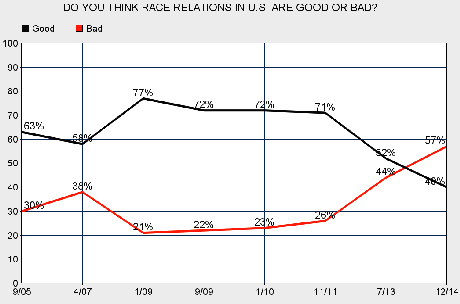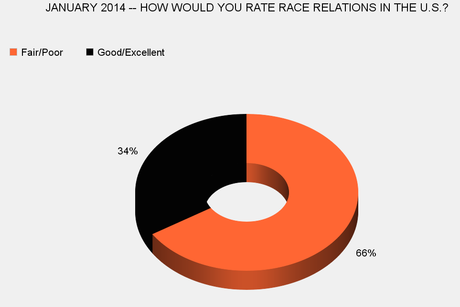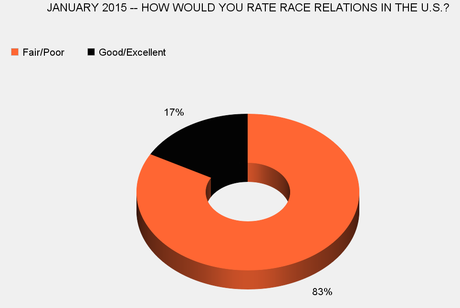
The top chart shows the views of the American public on race relations in the United States over the last decade. It comes from the recent NBC News / Wall Street Journal Poll done between December 10th and 14th of a random national sample of 1,000 adults, with a 3.1 point margin of error.
Note that a significant majority of Americans thought race relations were good (or at least improving), and reached a high point right after the election of President Obama. Some rather foolish people thought that election had shown the United States had reached a "post-racial" period, and that our racial problems had been solved (or were well on the way to being solved).
Of course, that wasn't even close to being true. And the president's election brought the die-hard racists back out from under their rocks. After years of muting their racism , they resumed their open and loudly proclaimed racism -- and sadly, too many Americans (especially among the teabaggers) accepted this new open racism without condemning it. By 2011, this began to have an effect on how Americans viewed the state of race relations in this country (note that the number of those who thought relations were good began to sharply decline).
Then we get to 2014. Last year, when the problems of police treatment of minorities hit the headlines across the country, it finally became obvious to a majority of Americans that race relations in the U.S. still have a long way to go before they can be considered to be good. Now 57% consider them to be only fair or poor, while a minority (40%) cling to the false belief those relations are good.
This is verified by a second survey (as illustrated in the charts below). It is the Rasmussen Poll -- done on January 14th and 15th of a random national sample of 800 adults, and has a margin of error of 3.5 points. It shows the number of people considering those race relations to be good has been cut in half in the last year -- dropping from 34% to only 17%.
We have seen progress in dealing with racism in the last four decades in this country -- but not enough. A lot more remains to be done.



